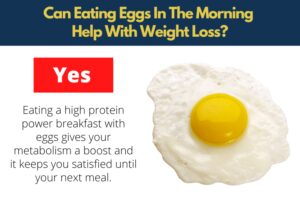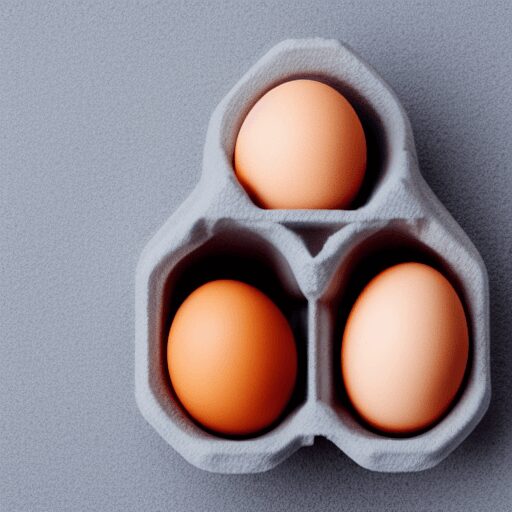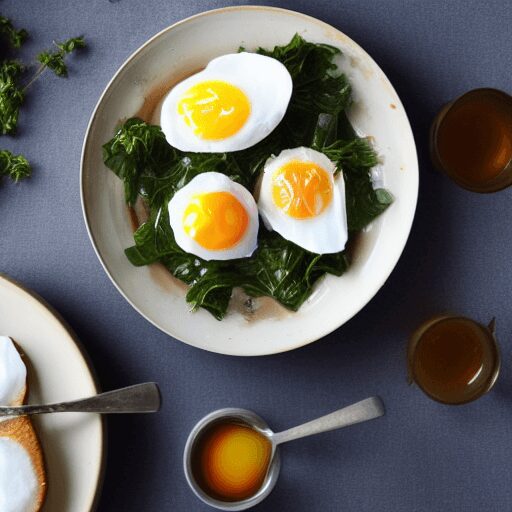Benefits of Eggs for Weight Loss and More!
Eggs are good for weight loss because they are low in calories, but they are high in protein.
They also make you feel full for a longer amount of time, which decreases the chance of snacking.
Egg whites are high in protein and contain almost no calories or fat.
How many calories are in an egg?
Does Eating Eggs In The Morning Help With Weight Loss?

Eating a high protein power breakfast with eggs gives your metabolism a boost and it keeps you satisfied until your next meal.
It keeps you from being tempted to eat high-fat/high-sugar snacks throughout the day.
How Many Eggs Can I Eat A Day To Lose Weight?
I know some people who eat 6-12 eggs per day on a low-carb diet and their blood work shows no ill effects.
Studies by American Society for Nutrition says that the average healthy person can eat up three whole eggs a day, but since everyone is different, you should check with your doctor.

Egg Diet Plan: Can You Lose Belly Fat By Eating Eggs?
Yes. Eating eggs for breakfast can help you lose belly fat.
One study found that people who ate eggs instead of bagels lost 65 percent more weight: 3 pounds compared to 1 pound over a three-month period!
What’s the healthiest way to cook an egg?

Poaching is one of the healthiest ways to cook eggs.
You can poach eggs by stirring together a cup of water and two tablespoons of vinegar in a pan over medium-high heat.
Then, crack an egg into a ramekin before pouring it into the water and let it simmer for 3 minutes or until solid.
Boiled Egg Diet: How Long Do Hard-Boiled Eggs Last?
Hard-boiled eggs can be stored in the refrigerator for one week.

Can You Eat Raw Eggs?
It’s better not to eat raw eggs because they contain salmonella, which can cause food poisoning.
What’s The Healthiest Way To Cook An Egg?
Poaching and soft boiling are two of the healthiest ways to cook an egg.
Instructions to make poached eggs:

- Bring a pot of water to a simmer.
- Crack an egg into a small bowl, then gently pour it into the simmering water.
- Repeat with remaining eggs.
- Cook for 3-4 minutes, until eggs are set.
- Remove with a slotted spoon and serve hot.
Instructions to make soft-boiled eggs:

- Put eggs in a pot and cover with cold water by 1 inch.
- Bring to a boil over high heat, then cover, remove from heat, and let sit for 6 minutes.
- Drain and rinse with cold water.
Eggs for Energy
Eggs give you a lot of energy because they have a high-quality protein content- one large egg contains six grams of proteins and only 70 calories.
Eggs are also rich in vitamins, minerals and carotenoids.
Eating foods with high-quality proteins like eggs helps increase your energy because proteins help release dopamine in the brain.
Dopamine helps you to feel energized and alert. It is good for people who work at night because it helps to regulate sleep-wake cycles.
Protein Quality:Whole Eggs Or Egg Whites?

It is actually better if you eat whole eggs instead of only eating egg whites.
Eggs help weight loss by providing protein and essential vitamins and minerals such as B vitamins, vitamin D, iron, zinc, potassium and calcium.
Eggs for Muscle Growth
Eggs are considered a complete protein because they provide a good amount of all the essential amino acids our body needs but cannot produce on its own.
Amino acids are the building blocks of protein.
Eggs for muscle growth are not only good to eat if you want to add more protein to your diet, but they can also help repair and build muscle tissue after a tough workout.
Eggs For Heart Health
Eggs have been shown to improve cardiac function by increasing HDL cholesterol levels and decreasing the propensity of blood to clot.
They also increase circulating antioxidants which prevent cardiovascular tissue damage.
Eggs also provide choline, a nutrient important for liver function, nerve function, and muscle movement.
Eggs for Brain Health
A study published in the Journal of Alzheimer’s Disease showed that feeding older adults with mild dementia egg yolks found them to have improved memory, problem-solving and better cognitive performance.
Eggs provide choline which is important for brain function.
They also provide Lutein and zeaxanthin which are antioxidants that help protect against brain deterioration.
Eggs for Eye Health
Eggs provide lutein and zeaxanthin, antioxidants important for vision.
These antioxidants prevent or slow macular degeneration which is the leading cause of vision loss in older adults.
Eggs can be eaten by themselves (fried, hard-cooked, or poached), or used in all kinds of cooking or baking.
Before purchasing eggs, always check the date on the package.
Try to purchase eggs that are as fresh as possible, but remember that eggs will keep for about three weeks beyond the pack date or about one month in your fridge.
Don’t keep eggs out of the fridge, and don’t wash them until you’re ready to use them.
In Conclusion, chicken eggs are considered one of the world’s most versatile foods as they can be added to recipes, eaten alone, or used as an ingredient for other dishes.
They are also a source of protein, vitamins, and minerals.
